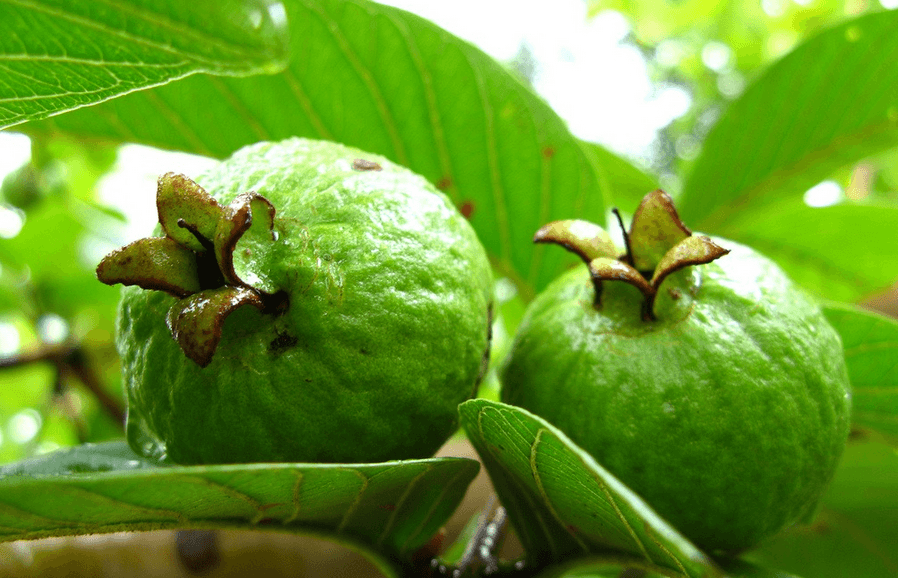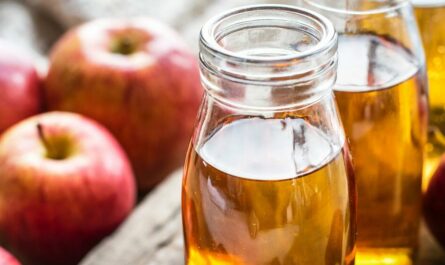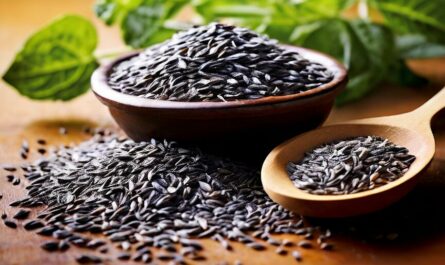Guava fruit is usually known for its distinctive flavor and tropical origin. However, do you know it is not only delicious but also a powerhouse of health benefits? This tropical fruit is rich in essential nutrients, antioxidants, and dietary fiber. From boosting the immune system to promoting healthy digestion, guava fruit offers a wide range of advantages. In this article, we will delve into 14 amazing health benefits of guava fruit.
Guava Nutrition at a Glance
Before we dive into the many health benefits of guava, let’s take a look at its impressive nutrient profile:
- High in Vitamin C: One guava contains over 600% of your daily vitamin C needs!
- Rich in Fiber: With 5.4 grams of fiber per fruit, guava can aid digestion.
- Good Source of Vitamin A: Important for eye health and immune function.
- Contains Potassium: Helps regulate blood pressure and supports heart health.
- Provides Folate: Essential for pregnant women and fetal development.
- Antioxidants Galore: Guava is loaded with lycopene, quercetin, and other antioxidants.
This combination of vitamins, minerals, fiber, and antioxidants is what gives guava its impressive array of health benefits.

14 Amazing Health Benefits of Guava Fruit
1. Immune System Booster
With over 4 times the vitamin C of an orange, guava is an excellent way to strengthen your immune defenses. Vitamin C is a powerful antioxidant that can help neutralize harmful free radicals and protect cells from damage. It also supports the production and function of white blood cells.
The antioxidants in guava, such as lycopene and quercetin. It can provide additional immune-boosting benefits by reducing inflammation and protecting cells from oxidative stress. Enjoying a few guavas or a glass of fresh guava juice can be a tasty way to fortify your body’s natural defenses, especially during cold and flu season.
2. Cancer-Fighting Properties
The high concentration of antioxidants in guava may also play a role in cancer prevention and treatment. Studies have shown that compounds in guava leaf extracts can inhibit the growth and spread of various types of cancer cells, including breast, prostate, and colon cancer.
One of the key compounds responsible for these anti-cancer effects is guava leaf oil, which contains potent antioxidants like quercetin and vitamin C. These antioxidants can help neutralize free radicals and prevent them from damaging DNA and promoting tumor growth.
While more research is needed, the antioxidants in guava may help protect cells from damage that can lead to cancer. Incorporating guava into your diet could be a delicious way to boost your intake of these powerful plant compounds.
3. Diabetes Management
Guava may be a helpful addition to a diabetic diet due to its low glycemic index and ability to regulate blood sugar levels. The fiber and polyphenols in guava can help slow the absorption of sugars from the digestive tract.
Several studies have found that drinking guava leaf tea after meals can significantly reduce post-meal blood sugar levels in individuals with type 2 diabetes. The tea may also improve insulin sensitivity. This makes it easier for cells to utilize glucose effectively.
Additionally, guava leaf extracts have been shown to inhibit certain enzymes that break down carbohydrates into sugars, further helping to control blood sugar levels. This makes guava a potential ally in managing diabetes and reducing the risk of complications like nerve damage and cardiovascular disease.
4. Heart Health Hero
Guava’s impressive nutrient profile also makes it a heart-healthy choice. The high potassium content can help regulate blood pressure levels, while the soluble fiber may aid in lowering LDL (bad) cholesterol.
Additionally, the antioxidants in guava may help protect the cardiovascular system by reducing inflammation and preventing oxidative damage to blood vessels and arteries. This can help reduce the risk of conditions like atherosclerosis, heart attacks, and strokes.
Guava is also a good source of folate, a B vitamin that plays a crucial role in maintaining healthy homocysteine levels. High homocysteine levels have been linked to an increased risk of heart disease. This makes folate-rich foods like guava an important part of a heart-healthy diet.
5. Digestive Aid
If you struggle with digestive issues like constipation or diarrhea, guava may provide some relief. The high fiber content in guava can help add bulk to stool and promote regular bowel movements.
Guava leaf extracts have also been traditionally used to treat diarrhea, thanks to their antimicrobial and anti-inflammatory properties. Some studies suggest these extracts may be effective against certain diarrhea-causing bacteria and viruses, though more research is needed.
The high levels of vitamin C and other antioxidants in guava may also help protect the lining of the digestive tract from damage and inflammation, further supporting overall gut health.

6. Menstrual Cramp Relief
For women who experience painful menstrual cramps, guava leaf extracts may offer a natural solution. A study found that taking guava leaf supplements was more effective at reducing menstrual pain than ibuprofen.
Additionally, the high levels of vitamin C and other antioxidants in guava may help reduce inflammation and oxidative stress, which can contribute to menstrual pain and discomfort.
7. Weight Management Aid
Guava may also be a helpful addition to a weight management plan. The high fiber content in guava can promote feelings of fullness and satiety, potentially reducing overall calorie intake.
Additionally, the low glycemic index of guava means it doesn’t cause rapid spikes in blood sugar levels, which can lead to cravings and overeating. The antioxidants in guava may also help regulate metabolism and support healthy fat-burning.
While more research is needed, some studies have suggested that incorporating guava into a balanced diet and exercise routine may aid in weight loss and body composition improvements.
8. Skin Health Booster
Guava’s high vitamin C content doesn’t just benefit your immune system. It can also work wonders for your skin. Vitamin C is a potent antioxidant that can help neutralize free radicals and protect skin cells from damage caused by UV radiation and environmental pollutants.
Additionally, guava is rich in lycopene, a powerful carotenoid antioxidant that can help shield skin from sunburn and premature aging. Some studies have even suggested that consuming lycopene-rich foods like guava may help reduce the risk of certain types of skin cancer.
The anti-inflammatory properties of guava may also help soothe conditions like acne, eczema, and psoriasis by reducing redness and irritation. For a refreshing skin treat, try mashing up some guava and applying it as a face mask!
9. Bone Health Support
Guava is an excellent source of several nutrients that are essential for maintaining strong, healthy bones. In addition to vitamin C, guava is a good source of manganese, copper, and folate.
Manganese is a trace mineral that is involved in the formation of bone minerals, while copper helps produce collagen. Folate, meanwhile, supports bone health by promoting the formation of new bone cells.
The antioxidants in guava may also help protect bones from oxidative stress and inflammation. Enjoying guava as part of a balanced diet rich in calcium, vitamin D, and other bone-building nutrients can help keep your skeletal system strong and resilient.
11. Anti-Aging Properties
Thanks to its impressive array of antioxidants and anti-inflammatory compounds, guava may offer some powerful anti-aging benefits. The high levels of vitamin C, lycopene, and other antioxidants can help neutralize free radicals and protect cells from oxidative damage.
Additionally, the anti-inflammatory properties of guava may help reduce inflammation throughout the body. Some studies have even suggested that compounds in guava may help protect against age-related macular degeneration, a leading cause of vision loss in older adults.
12. Liver Health Support
Guava may be a friend to your liver, thanks to its potent antioxidant and anti-inflammatory properties. The high levels of vitamin C and other antioxidants in guava can help protect liver cells from damage caused by free radicals and toxins.
Additionally, guava leaf extracts have been shown to have hepatoprotective effects. This meaning they can help shield the liver from injury and promote healing.
Some studies have suggested that guava leaf extracts may be effective in treating certain types of liver disease, such as non-alcoholic fatty liver disease (NAFLD).
The anti-inflammatory compounds in guava may also help reduce inflammation in the liver, which can contribute to the development of conditions like cirrhosis and liver cancer.
13. Brain Health Boost
Guava’s impressive nutrient profile may also offer some benefits for brain health and cognitive function. The high levels of antioxidants like vitamin C and lycopene can help protect brain cells from oxidative stress and inflammation.
Additionally, guava is a good source of folate, a B vitamin that plays a crucial role in brain development and function. Folate deficiency has been associated with an increased risk of cognitive impairment and depression.
The anti-inflammatory properties of guava may also help protect the brain from inflammation-related damage.<
14. Fertility Support
For couples trying to conceive, adding guava to their diet may offer some fertility-boosting benefits. Guava is an excellent source of folate, a B vitamin that is crucial for healthy fetal development and preventing neural tube defects in babies.
Folate deficiency has been linked to an increased risk of infertility, as well as recurrent miscarriages and low birth weight. By ensuring adequate folate intake through foods like guava, couples can help support a healthy pregnancy from the very start.
Additionally, the antioxidants in guava may help protect both male and female reproductive cells from oxidative stress and damage. For women struggling with painful menstrual cramps, the muscle-relaxing and pain-relieving properties of guava leaf extracts may offer some natural relief.
How to Use Guava in Your Diet
With so many potential health benefits, it’s easy to see why incorporating guava into your diet is a smart move. Here are some delicious ways to enjoy this tropical treat:
- Fresh Guava: Simply slice it in half and scoop out the sweet, fragrant flesh with a spoon. The rind is edible but can be tough, so many prefer to discard it.
- Guava Juice: Look for 100% guava juice or blend fresh guava into smoothies or juices.
- Guava Salsa: Dice up guava and mix it with onions, cilantro, lime juice, and jalapeño for a refreshing salsa.
- Guava Jam or Jelly: Spread on toast, scones, or use as a glaze for meats or baked goods.
- Guava Leaf Tea: Steep dried guava leaves in hot water for a soothing, antioxidant-rich tea.
When selecting guavas, look for fruits that are slightly soft to the touch but not overly ripe or mushy. Ripe guavas will have a sweet, tropical aroma and may have a slight pinkish blush to the skin.
A Few Words of Caution
While guava is generally safe for most people when consumed in moderation, there are a few potential downsides to be aware of:
- High in Natural Sugars: Despite its many benefits, guava is still a fruit and contains natural sugars. Those watching their sugar intake may want to limit portion sizes.
- Potential Allergic Reactions: Some individuals may be allergic to guava, experiencing symptoms like rash, itching, or difficulty breathing after consumption.
- Medication Interactions: Guava may interact with certain medications, such as blood thinners, diabetes medications, and cancer treatments. Check with your doctor before consuming large amounts.
- Potential Toxicity: Guava leaves and bark contain compounds that can be toxic in large doses, so it’s best to stick to consuming the fruit itself or using small amounts of guava leaf tea.
As with any food, moderation is key. But for most people, the potential benefits of guava far outweigh any risks.






